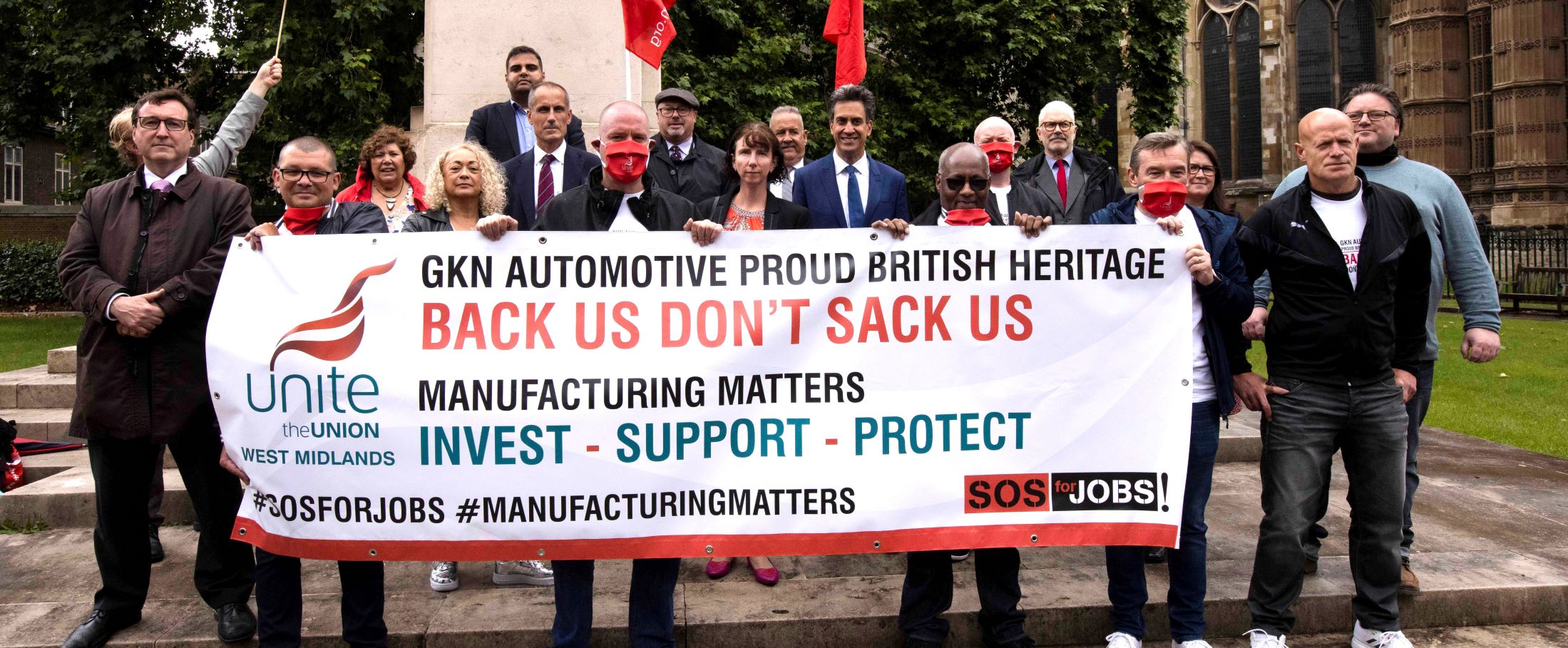â€Constitutional outrage’
Unite has joined forces with manufacturers and other unions to urge MPs to protect manufacturing jobs by amending the controversial customs bill, a key part of the government’s Brexit legislation.
The union, along with 11 national organisations, sent a briefing to MPs calling for the bill’s trade remedies to be strengthened to prevent the illegal dumping of components including steel, chemicals, glass and paper.
The Taxation (Cross Border Trade) Bill, known as the customs bill, is currently undergoing its second reading in the House of Commons and contains trade remedies that are significantly weaker than the current EU ones.
Unite, along with leaders from the ceramics, glass, agriculture, paper, chemicals, mineral and steel industries, is clear the bill’s remedies need to be bolstered to defend British manufacturing jobs against anti-competitive trade practises.
â€Free for all’
“Instead of free trade, the customs bill will create a free-for-all,” said Tony Burke, Unite’s assistant general secretary for manufacturing.
“If the UK has the world’s weakest trade remedies, many thousands of high quality jobs in manufacturing are at risk across the country. This is too important an issue for the government to carry on regardless. They must make significant improvements to the bill.”
Shadow secretary of state for international trade, Barry Gardiner MP, said the bill was another attempt at a “power grab” by the government because of its use of Henry VIII clauses, which would allow ministers to bypass MPs when changing legislation.
Henry VIII clauses also formed part of the government’s EU Withdrawal Bill, over which Theresa May suffered a humiliating defeat in December after MPs voted to curb its powers and allow Parliament a proper vote on any final EU deal.
Writing in the Independent, Gardiner said the customs bill excludes Parliament from influencing or monitoring trade policy.
He said, “No minister should be able to whisk through Parliament agreements that are negotiated behind closed doors. And that is how Liam Fox seems to prefer to do them: just before Christmas we found out that his department has colluded with its American counterpart to keep all information on US-UK trade talks confidential for four years after their conclusion.
“Our democracy will be diminished if the government is allowed to get away with this constitutional outrage.”
 Like
Like Follow
Follow

